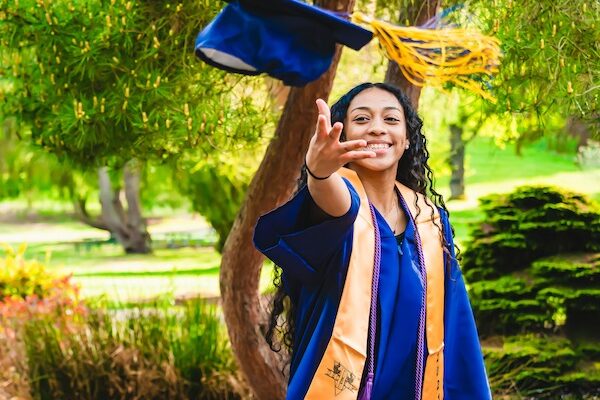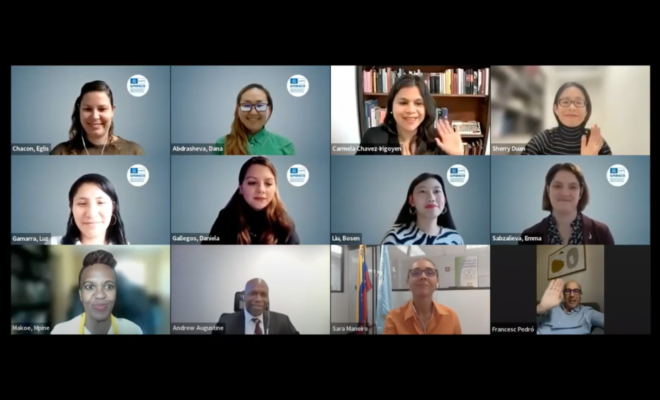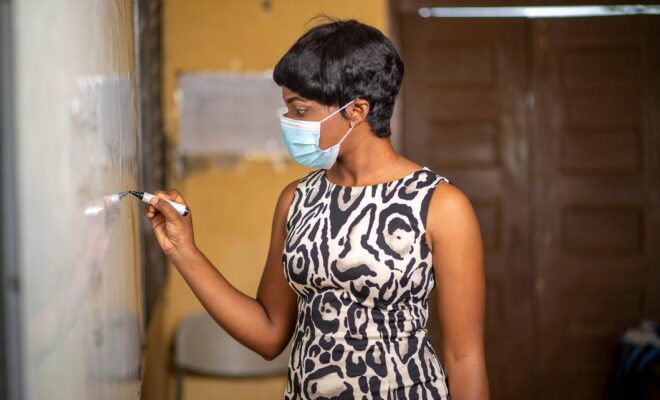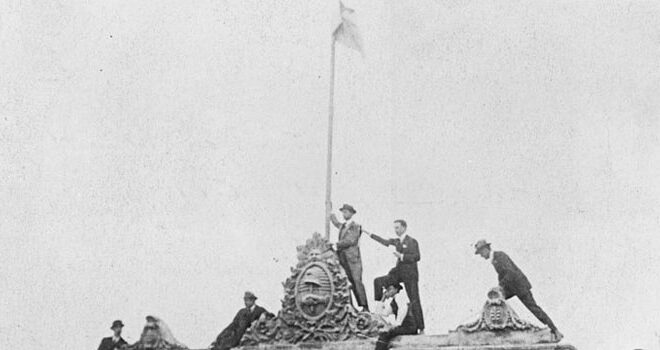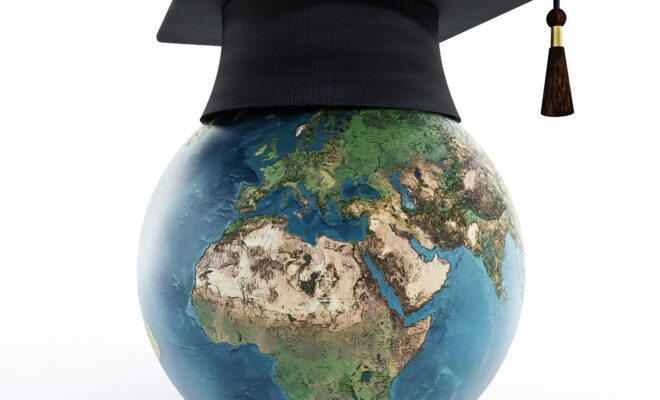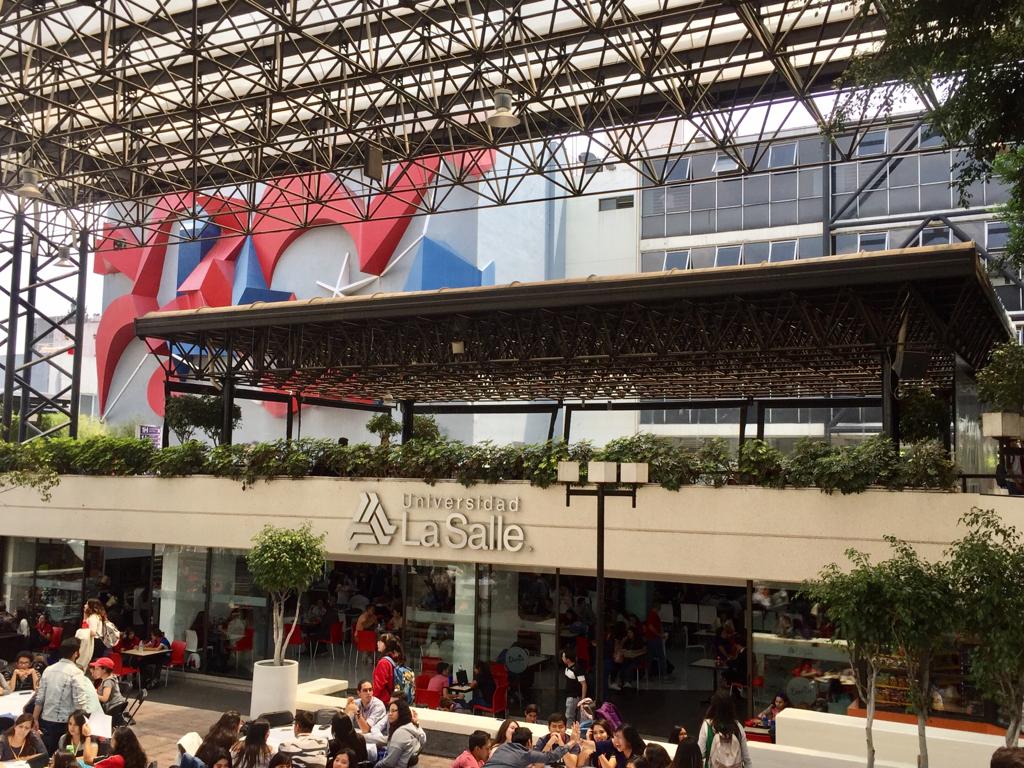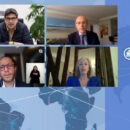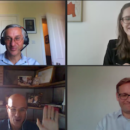“From UNESCO IESALC we want to encourage the richness and diversity of perspectives that characterize the region to be present at the Third World Higher Education Conference in 2022”, Francesc Pedró

The director of UNESCO IESALC assured that this edition of the World Conference would be highly participatory, allowing any person or entity to make their voice heard, thus favoring plurality and multilateralism
UNESCO has announced the Third World Conference on Higher Education to be held in Barcelona in May 2022, inviting the various regional offices to carry out preparatory consultations. In this context, the UNESCO International Institute for Higher Education in Latin America and the Caribbean (IESALC) has initiated a broad consultation process, jointly with the Ibero-American General Secretariat (SEGIB), the Organization of Ibero-American States for Education, Science and Culture (OEI), the Inter-American Development Bank (IDB) and Santander Universities.
To better understand the scope of this regional consultation and its objectives, we interviewed Francesc Pedró, Director of UNESCO IESALC.
—Why a new World Higher Education Conference?
—The UNESCO World Higher Education Conference is an international meeting to promote global dialogue, reflection, and debate on higher education, organized once every decade. A new World Conference is held because new knowledge, innovative ideas, creative partnerships and produce an expanded and revitalized coalition of the international higher education community in support of the 2030 Agenda for Sustainable Development are required. In this third edition, the ultimate goal is to contribute to designing the agenda in higher education that UNESCO will promote in the next ten years. It is, therefore, important because, as an intellectual agency of the United Nations we can contribute to a better development of quality and equity policies in higher education worldwide. To this end, it is essential to ensure maximum openness and transparency, making it easier for all stakeholders to express their views and propose their priorities.
—How does it differ from previous conferences?
—Fundamentally in two ways. The first is that, thanks to the boost that the use of communication technologies has received during the pandemic, we are proposing for the first time a hybrid conference that will combine exchanges between people participating in person and those who will do so via a platform specifically designed for this purpose. In more than one sense, it can be seen as a pilot test of what UNESCO conferences will be like from now on: hybrid and with the will to encourage inclusive participation further. The second difference lies in the emphasis of the final objective: the aim is not to produce a consensus declaration among Member States, but to redesign UNESCO’s higher education agenda for the next ten years by proposing a new roadmap that is inspiring at the global level and meaningful and relevant at the local level.
—What would be, then, the relationship between global and regional conferences, such as the one held in Cordoba (Argentina) in 2018?
—Latin America and the Caribbean is the only region globally with its acquis in regional conferences on higher education. They represent a commendable effort to find consensus at the regional level to enable the development of higher education with greater quality, equity, and inclusion. In more than one sense, the region is fortunate to have this heritage to bring to the debates at the World Conference. It is already present through the final declarations of the three previous regional conferences. But it should not be forgotten that, since the successful Regional Conference in Cordoba in 2018, where the Cordoba Declaration of 1918 was commemorated, the pandemic has completely upended both the context and the reality of higher education provision in the region. Its effects, as we at UNESCO IESALC have documented, will be felt for a long time to come.
—Why a regional consultation before the World Conference?
—UNESCO is fully aware of the difficulties that the pandemic has created in organizing regional conferences, as perhaps would have been desirable. Precisely for this reason, UNESCO has suggested that the regional offices organize broad participatory and open consultations, the results of which will be taken to the World Conference. In our case, we wanted to complement this participatory consultation with open debates, one for each of the ten themes that make up the agenda of the World Conference, to which we have invited representatives of the different actors: governments, higher education institutions, teachers’ and students’ organizations, as well as regional networks and academic specialists, starting with the directors of UNESCO Chairs in higher education. In short, we want to ensure that the richness and diversity of governmental and stakeholder perspectives find avenues of expression while at the same time respecting that they can generate their consultative processes and bring their proposals directly to the World Conference. The hybrid nature of this conference will undoubtedly facilitate this. Therefore, we hope to achieve a very high level of participation that will make this third edition a new milestone.
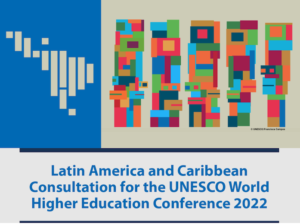
—What is UNESCO IESALC’s position on the principles on which higher education should be based?
—We need, after the pandemic, to resume the conversation to reaffirm the fundamental principles that UNESCO advocates in higher education: that it is a public and social good and that, therefore, there is a universal right to it, on the one hand, and that, on the other, the State is the guarantor of that right. It also guarantees the essential institutional autonomy of universities, which makes them not only educators of people but also generators of knowledge and wisdom and transformers of our societies. As I mentioned earlier, the World Conference, and the preparatory consultations at regional level that are taking place, are not aimed at proclaiming a declaration but at defining UNESCO’s agenda in higher education for the next decade – as requested by UNESCO’s General Conference in 2020. This process does not equate to that of a regional conference, far from it; on the contrary, each of the activities begins with a presentation of the accumulated acquis of the regional conferences, precisely to ensure that we build on a solid foundation. It is important to highlight the role that, in this regard, the CRES 2018 Follow-up Office, which IESALC supports, would be called upon to play to maintain the emphasis on the commitments already made.
—How will the conclusions of this regional consultation reach the World Conference?
—The conclusions of each colloquium and those of the open consultation will be made public progressively, and whoever wishes to do so will be able to make their contributions and comments; this is the enormous advantage we have in having technology support. The final result, together with the other contributions received through the channels provided by UNESCO, will be used to feed the discussions that will take place at the World Conference.
—Is participating in this consultation the only way to make one’s voice heard at the World Conference?
—Of course not. The regional consultation is only one of the many activities developed in our region and in others as part of the preparatory work for the World Conference. We are proud to have SEGIB and OEI as partners, which together with UNESCO are the two most important multilateral organizations in higher education in the region, as well as the IDB, which finances a significant number of quality and equity projects in the sector in different countries, and Santander Universities, which is the main source of financial aid to university students worldwide, and also in the region. But it is important to emphasize that we are not looking for joint statements but rather to encourage debates from different and complementary perspectives; in short, a plurality of voices, representing the richness of the region, find another channel of expression.
—How can I participate?
—All the information is available on our website, www.iesalc.unesco.org, and we announce each colloquium on time. In addition, you can participate in the open consultation.
—What if I want to send a contribution directly to the World Conference? How do I do it?
—Follow the instructions on the Conference website. I want to add that there are a large number of organizations and networks of higher education institutions, as well as academic specialists in the region, who are preparing their contributions to the World Conference, which in its third edition has sought to be highly participatory, allowing any person or entity to make their voice heard from a perspective that favors plurality and multilateralism. IESALC has been participating for the past year in many consultative activities on the World Conference launched at regional, national, and even institutional level, from a plurality of actors and sectors. Likewise, we have offered to facilitate any organization or institution to make its contributions to the World Conference in a variety of formats or to contribute to its own debates. If we are asked to participate, we will be there. In this highly inclusive process of contributing to UNESCO’s higher education agenda, the voices of all stakeholders are indispensable.
RELATED ITEMS

